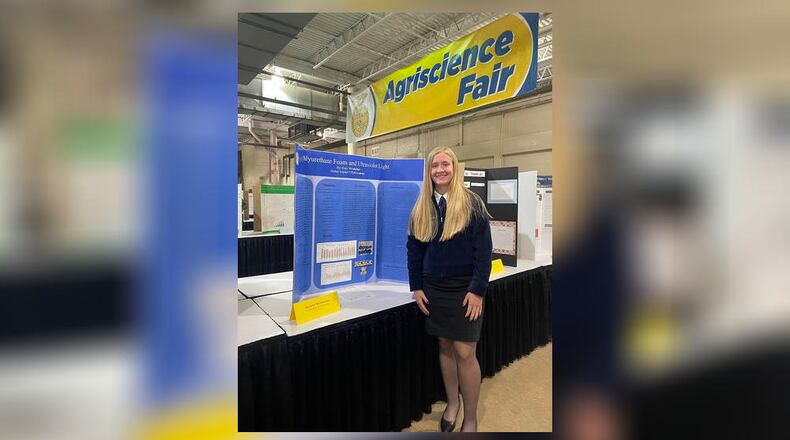Choi did the project, “The Effects of Different Acid-Based Cleaners on Aluminum,” while Henry’s project was, “Does Ski Wax End Up In Soil Water Run-Off?” Jackson did the project, “Does Milk Type Have An Affect on the Spoilage Time and Amount of Bacteria and Mold Growth?” Moore did the project, “Which Microgreen Cotyledon Leaves Store More Starch?” and Welsheimer’s project was, “Polyurethane Foam and Ultraviolet Light.”
Choi and Welsheimer were named national finalists in the categories of Power Systems in divisions 1 and 5; Henry was named a national finalists in the area of Environmental Sciences, division 1; Jackson received a bronze medal in the Food Science category; and Moore received a bronze medal in the Plant Systems category.
More than 20 agricultural teachers and college professors from throughout the U.S. met virtually to determine what FFA members and teams will compete for top honors in the 2023 National FFA Agriscience Fair.
The fair is a key competition part of the annual National FFA Convention & Expo, Nov. 1-4, in Indianapolis. To qualify, FFA members in grades 7 through 12 are required to conduct a scientific research project pertaining to the agriculture or food science industries and win their state’s FFA agriscience fair.
Individuals or teams compete in one of six categories of animal systems; environmental services/natural resource systems; food products and processing systems; plant systems; power, structural and technical systems; or social science, and in six divisions of individuals in grades 7-8, teams grades 7-8, individuals grades 9-10, teams grades 9-10, individuals in grades 11-12 and teams grades 11-12.
The first-place winners in each state have qualified for the national pre-qualifying judging. The judges reviewed entries and selected a maximum of 12 in each category and division to move to the national competition.
For a complete list of results, visit www.ffa.org/participate/awards/agriscience-fair/.
About the Author

